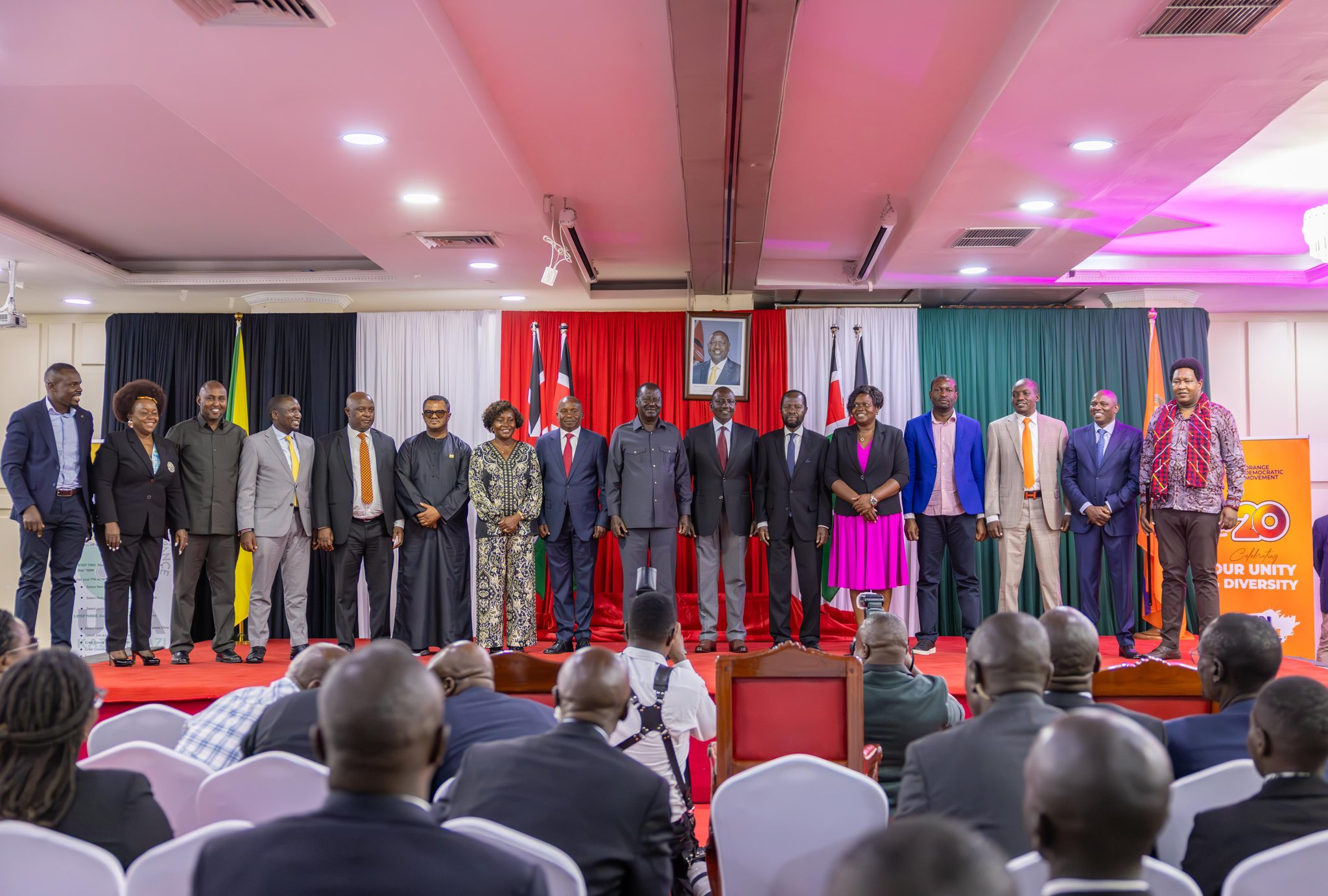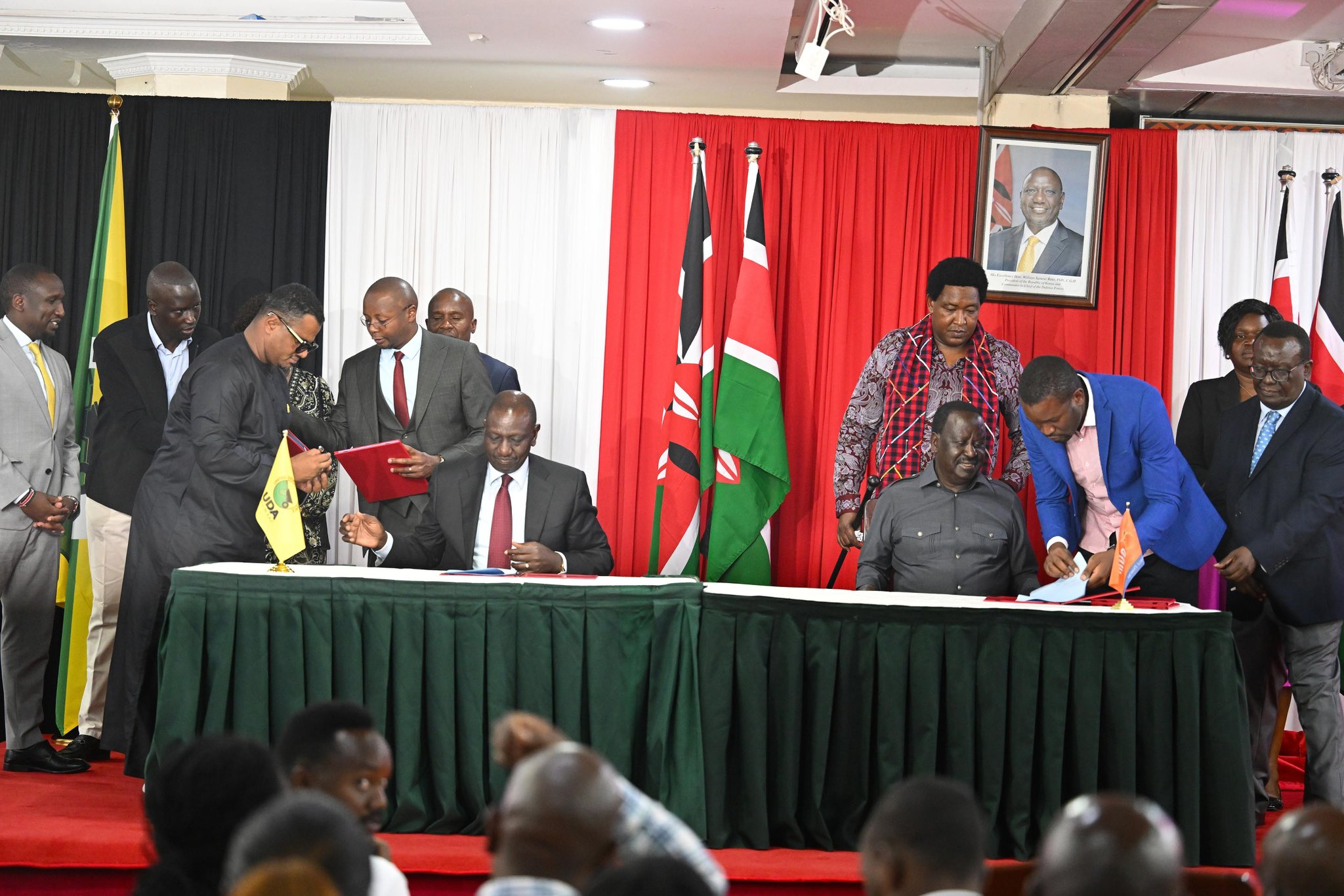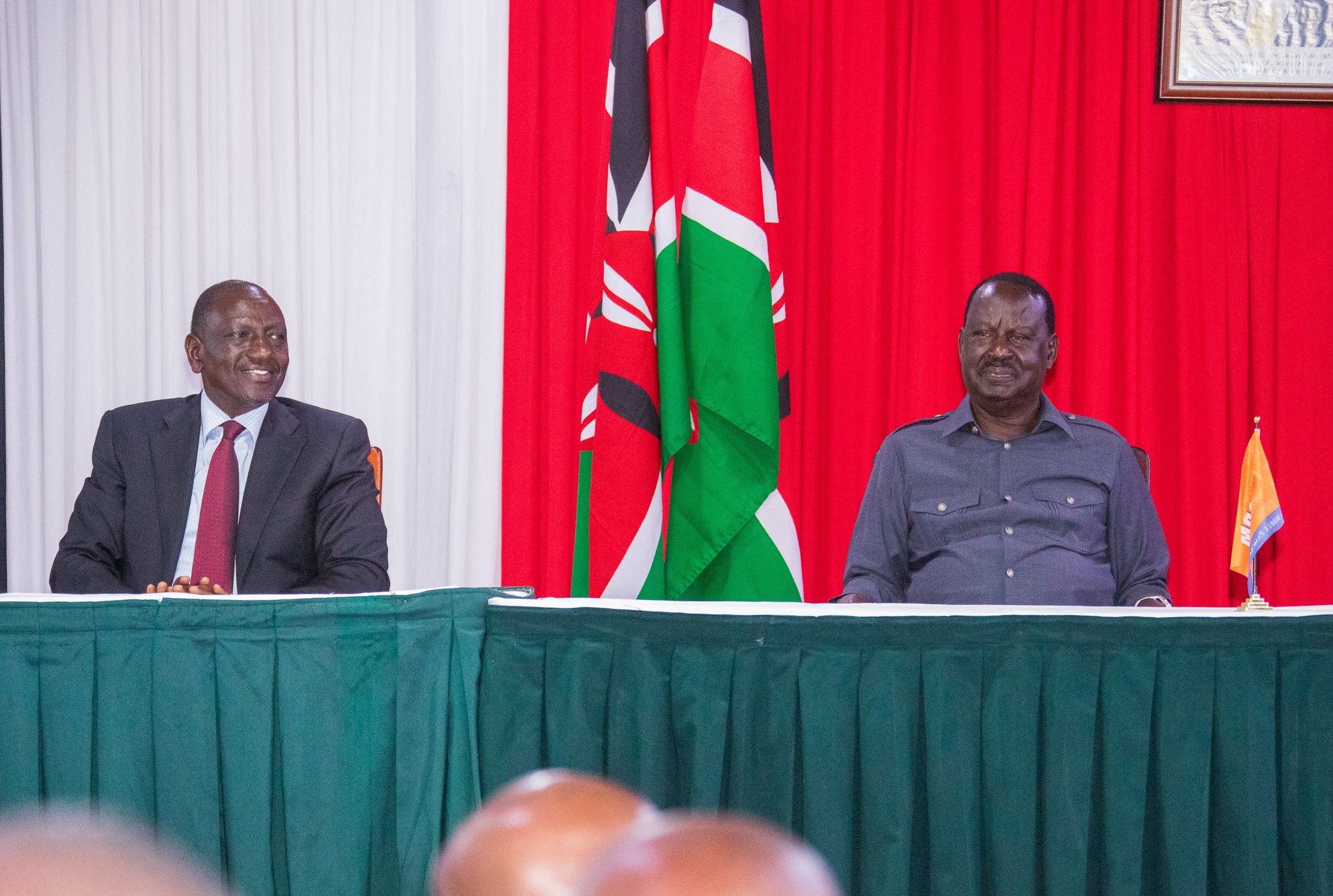President Ruto and Raila Odinga Sign Landmark 10-Point Political Cooperation Deal
A New Era of Unity and Governance Reforms in Kenya
In a historic move aimed at fostering political stability and national development, President William Ruto and opposition leader Raila Odinga have signed a 10-point political cooperation deal, marking a significant step toward governance reforms, inclusivity, and accountability in Kenya.
The agreement, signed in Nairobi, is seen as a breakthrough in Kenya’s often tense political landscape, bringing together two of the country’s most influential leaders to chart a new path for political and economic transformation.

The 10-Point Agreement: Key Areas of Focus
The cooperation deal outlines comprehensive reforms designed to enhance governance, national unity, and democratic accountability. The ten key pillars of the agreement include:
1. Electoral Reforms: Strengthening the electoral process to ensure free, fair, and transparent elections.
2. Inclusivity in Government: Promoting representation of all communities in governance to foster national unity.
3. Judicial and Legal Reforms: Enhancing the independence of the judiciary and strengthening the rule of law.
4. Devolution and Resource Allocation: Empowering county governments through equitable resource distribution.
5. Anti-Corruption Measures: Reinforcing the fight against corruption with stricter laws and enforcement.
6. Economic Revitalization: Addressing the rising cost of living and promoting economic policies that benefit all Kenyans.
7. Security and Stability: Strengthening national security while ensuring respect for human rights.
8. Youth and Employment Policies: Creating job opportunities and skill development programs for the youth.
9. Parliamentary Cooperation: Encouraging bipartisan engagement in legislative processes.
10. Public Participation and Civic Engagement: Strengthening citizen involvement in governance decisions.
Ruto and Raila’s Commitment to a Unified Kenya
Speaking at the signing ceremony, President Ruto emphasized the importance of political cooperation in ensuring national progress.
"Kenya belongs to all of us, and we must work together, despite our political differences, to build a stronger, more inclusive, and prosperous nation. This agreement is a commitment to unity, governance reforms, and accountability," Ruto said.

Raila Odinga, on his part, underscored the need for political maturity and dialogue to address the country’s challenges.
"The era of political animosity should be left behind. Our focus now is on working together to improve governance, fight corruption, and ensure that the will of the people is always respected," Odinga remarked.
Impact on Kenya’s Political Landscape
The deal is expected to reshape Kenya’s political environment, fostering collaboration between the ruling party and the opposition. Analysts see it as a strategic move to end divisive politics and pave the way for structured dialogue on critical national issues.
Political observers believe the agreement could also influence the 2027 elections by creating a platform for consensus-building and reducing political tensions that have historically plagued the country.

Public and Political Reactions
The signing of the agreement has sparked mixed reactions across the political spectrum. Supporters see it as a bold step toward national unity, while some critics argue that it may weaken the role of the opposition in holding the government accountable.
Civil society organizations have welcomed the deal but called for its full implementation to ensure tangible benefits for ordinary Kenyans.
Conclusion: A New Dawn for Kenya?
As President Ruto and Raila Odinga embark on this political cooperation journey, the success of the agreement will depend on the commitment of both sides to genuine reforms. If implemented effectively, the 10-point deal could usher in a new era of political stability, economic growth, and democratic governance in Kenya.

For now, the country watches closely as two former rivals work together to shape Kenya’s future.